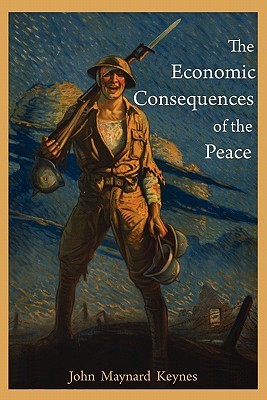
- We will send in 10–14 business days.
- Author: John Maynard Keynes
- Publisher: Martino Fine Books
- Year: 2011
- Pages: 308
- ISBN-10: 1614270066
- ISBN-13: 9781614270065
- Format: 15.2 x 22.9 x 1.8 cm, minkšti viršeliai
- Language: English
- SAVE -10% with code: EXTRA
Reviews
Description
2011 Reprint of 1920 Edition. Full facsimile of the original edition, not reproduced with Optical Recognition Software. According to Paul Volcker, The Economic Consequences of Peace marked the entrance into the world scene of the twentieth century's most influential economist. It should be in the library of every serious student of world affairs. Keynes attended the Versailles Conference as a delegate of the British Treasury and argued for a much more generous peace. The book was a best seller throughout the world and was critical in establishing a general opinion that the Versailles Treaty was a vindictive and counter-productive peace settlement. The book also helped to consolidate American public opinion against the treaty and against involvement in the League of Nations. The perception by much of the British public that Germany had been treated unfairly in turn was a crucial factor in public support for appeasement. The success of the book established Keynes' reputation as a leading economist especially on the left. When Keynes was a key player in establishing the Bretton Woods system in 1944, he remembered the lessons from Versailles as well as the Great Depression. The Marshall Plan after Second World War is a similar system to that proposed by Keynes in The Economic Consequences of the Peace.
- Author: John Maynard Keynes
- Publisher: Martino Fine Books
- Year: 2011
- Pages: 308
- ISBN-10: 1614270066
- ISBN-13: 9781614270065
- Format: 15.2 x 22.9 x 1.8 cm, minkšti viršeliai
- Language: English English
2011 Reprint of 1920 Edition. Full facsimile of the original edition, not reproduced with Optical Recognition Software. According to Paul Volcker, The Economic Consequences of Peace marked the entrance into the world scene of the twentieth century's most influential economist. It should be in the library of every serious student of world affairs. Keynes attended the Versailles Conference as a delegate of the British Treasury and argued for a much more generous peace. The book was a best seller throughout the world and was critical in establishing a general opinion that the Versailles Treaty was a vindictive and counter-productive peace settlement. The book also helped to consolidate American public opinion against the treaty and against involvement in the League of Nations. The perception by much of the British public that Germany had been treated unfairly in turn was a crucial factor in public support for appeasement. The success of the book established Keynes' reputation as a leading economist especially on the left. When Keynes was a key player in establishing the Bretton Woods system in 1944, he remembered the lessons from Versailles as well as the Great Depression. The Marshall Plan after Second World War is a similar system to that proposed by Keynes in The Economic Consequences of the Peace.


Reviews